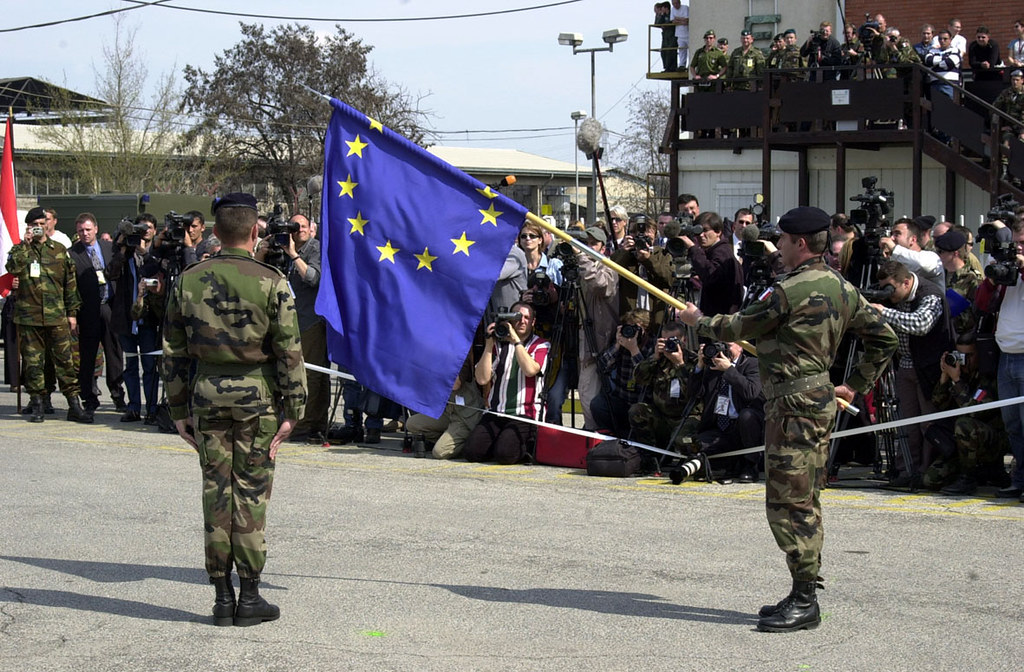- Thread Starter Thread Starter
- #9,721
Agreed. Well... stupidity from the standpoint of someone who wants to end the war in Ukraine. Orban was pursuing his own political goals within the context of which the statement was arguably not stupid, just dishonest.@Feanor My point was that no one has the ability to stop the war in 48h, not even the President of the US. What Orban said was stupidity perpetuating this myth.
I think there is part of what you say it true and part of what you say is false. There are two parties that can end the war by near-unilateral decision-making. They are Russia and Ukraine. I say near-unilateral because in reality Ukraine wants Crimea back, and that's not a real option for Russian leadership. Withdrawing to the Feb '22 line, or even to the '14 Russian state border + Crimea won't necessarily end the fighting, and surrendering a territory whose population has a supermajority of ethnic Russians, and who were definitely in favor of annexation would be a massive betrayal. In reality even surrendering Donestk and Lugansk, territories where the population today (what they wanted in '14 is a different story) wants nothing to do with the Ukraine that has been their enemy for the past decade would be a major betrayal not just in perception but in reality. So ending the war unilaterally is only possible by a borderline surrender on Russia's part. And of course Ukraine can also end the war very easily. Russia has declared annexation of 4 regions, so give Russia those 4 regions (possibly in exchange for reparations disguised as economic assistance) and agree to neutral nation status with some sort of arms control treaty between Russia and Ukraine. The war can be ended by Ukraine too. If this doesn't sound particularly reasonable, well you're right. It isn't. But neither is expecting Russia to give up Crimea, Donestk, and Lugansk.Of course that Trump talked about funding for Ukraine. My point was that it's not funds to Ukraine that matter but the decision from the Russian leadership.
If Putin's advisers and ministers start to disagree with him and don't want to waste more money into the Special Military Operation or want to limit the expenses, then the war has a chance to end.
If the West completely stops funding the Ukrainian war, 1/ I's not a given that the war will stop and 2/ we have no garantee whatsoever that war will not continue beyond Ukraine.
Nazy Germany didn't stop at annexing Austria and Slovakia.
As to the Nazi Germany comparison, let's not forget that Nazi Germany was able to rapidly and easily overrun these countries, Nazi Germany had a prevailing ideology that dictated this kind of aggressive expansionism, and Nazi Germany was well supported by allies (Italy, Hungary, Romania, Finland). At the time it annexed Czechoslovakia (the country of Slovakia certainly didn't exist at that time) Poland was effectively a Germany ally, grabbing a piece of Czechoslovakia for itself. Russia spend 2 months losing a mobile war in Ukraine, and settled down for ~2 years of positional stalemate. A peace that gives Russia few low population areas it managed to conquer, and recognizes the realities of '14 (loss of Crimea, Donetsk and Lugansk) doesn't enable Russia to continue invading other countries. If they can barely handle Ukraine earning themselves a Pyrrhic victory, what chances do they have to overrun other areas?
Perhaps Putin is intentionally keeping his options open so he doesn't have to commit to a position before sitting down at the table. I can't speak confidently, but if it was me, that's what I would do. You want to know what I want? Sit down at the table and we can talk. You don't want to sit down at the table? Then why would I want you to know what I want? Being predictable isn't a good thing in conflicts.I disagree, Putin/Russia could make public what they want and we would know where to start. You don't need negotiations to know what they want. So far Putin has only talked about abstract concepts like demilitarization, denazification and protecting Russian minorities. Sometimes hinting, or more than just hinting, at the eradication of the Ukrainian state. He never posed territorial claims. He never said "I want this and this". He only said that the recently annexed territories have always been part of Russia and will be for ever and that it's not negotiable. But he never put a geographical limit to his vision of the Russian borders. In his mind, Russia has no border. As long as they are Russians somewhere, it's Russia.
Just about anything can be negotiated. Where to go to dinner with your significant other, what level of nuclear arsenal is acceptable, which part of Poland goes to the USSR and which part to Nazi Germany. Negotiations are bargaining. Bargaining of some sort is possible on just about every topic that exists. The problem Ukraine has is that their current bargaining position is terrible. They have little to offer besides surrendering some territory. What else can they give Russia? If they don't want to give anything, they can't get anything. Hence Ukraine's unwillingness to negotiate. If ones position is that it's unfair to expect Ukraine to give up anything since they're the victim, then ones position (whether they're willing to admit this or not) is against negotiations. Negotiations aren't about justice or fairness. They're about striking a deal. Right now any realistic negotiation would involve Ukraine deciding what territory they're willing to lose in exchange for getting something back, and possibly some sort of reparations. If Ukraine can come up with something Russia wants, they can improve their bargaining position. If they continue to lose territory and population, their bargaining position will get weaker. If we believe that this war ends at the negotiating table, and this seems to be the consensus from most observers, then the only real question is this; will Ukraine's bargaining position tomorrow be stronger then it is today?So what can be negotiated, in your opinion?
The UN doesn't typically establish borders. The borders of Ukraine were established by Soviet leadership shortly after the Russian Revolution. While I'm touched by your respect for the sanctity of their decisions, I'm far less inclined to consider lines drawn by political figures from 100+ years ago sacred, especially when they rather poorly correspond to realities on the ground. I won't address the other examples to avoid tangents in what is already a very long reply, but it's fairly clear the reason the US doesn't recognize Taiwan is not because Chinese border are sacred but for political reasons. If respecting a border prevents a war, great let's do it. But in this case the war exists and can not be prevented, barring time travel. It's already happened. If your priority is peace, then at this point the question is, does insisting on the '91 border shorten the war or lengthen it?There is no miracle receipt against war. But respecting borders established by the UN is a good start and has been effective. Even in the Middle East, and the Syria-Iraq-Kurdistan triangle, borders are still respected and no country is trying to invade the other. They use proxies, political influence. OK. But they don't invade.
The wars after the split-up of Yugoslavia happened precisely because there were no recognised border and no recognised entities. (And because some of them decided to use violence).
Nobody has recognised Taiwan as an independent state, even thought the West attitude to this issue is borderline, so to speak.
There are no recognised border for the Palestinian state, and war there is endless.
Borders are not sacred cows, but they are sacred.




















